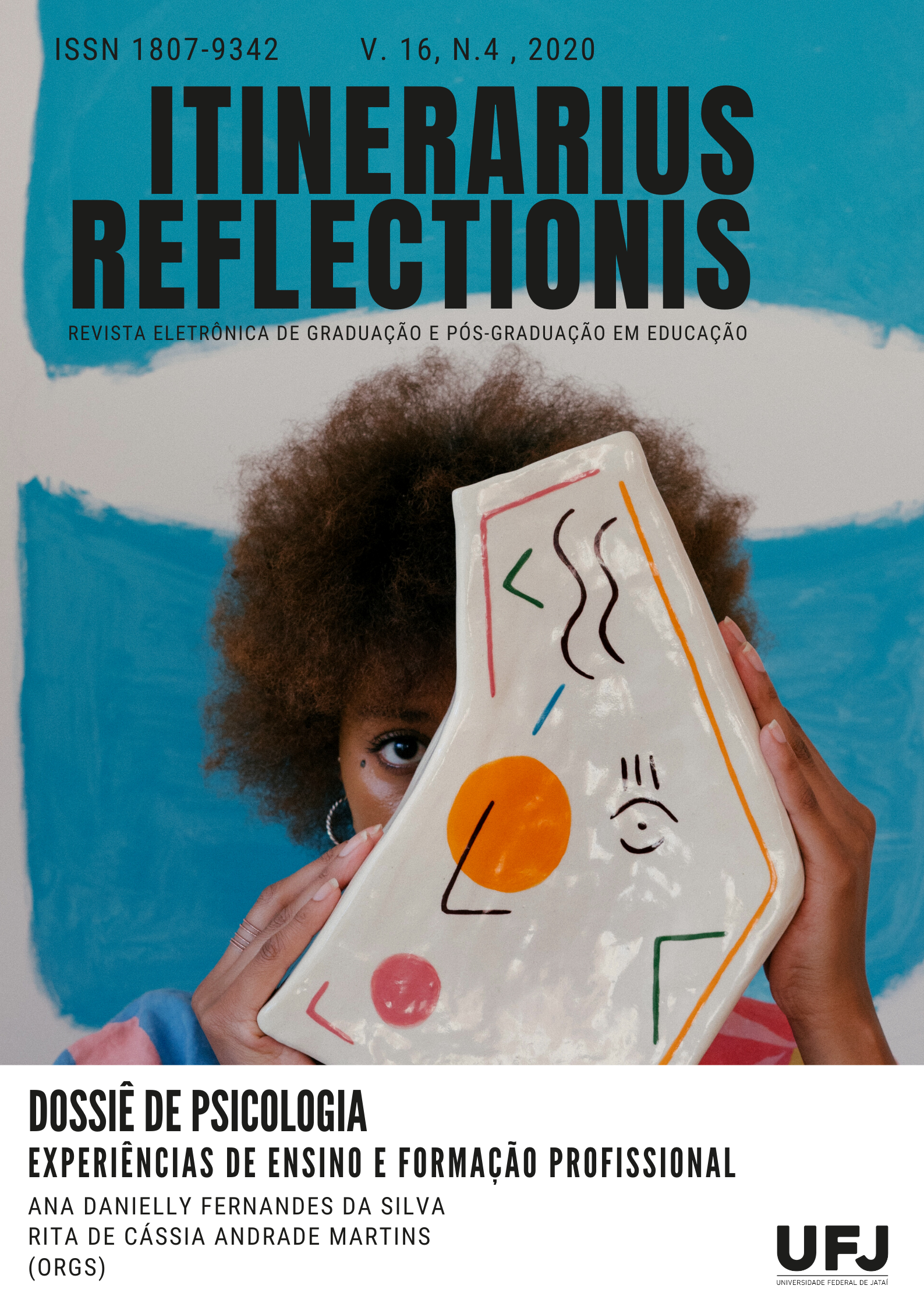Contribuições do serviço de orientação profissional para a formação do psicólogo
DOI:
https://doi.org/10.5216/rir.v16i4.65945Abstract
This article aims to define the Professional Guidance Service (PGS), offered to high school students, pre-university entrance courses and adult and youth education (AYE) with a highlight of its importance in Psychology students graduation, as well as strengthening the Applied Psychology Service (APS) as a place for training and mental health care. The reflections presented are the result of the current analysis of the psychologists who worked as extension workers in 2014 and the project supervisor, from the re-reading of the reports produced at the time. In the same year, the project was published in 10 public and 7 private educational institutions in the municipality of Jataí. Then, individual screening interviews were conducted, with the participants being organized into 4 groups, carried out on different days and times. Each group started the sessions with an average of 15 participants and was conducted by two or three students from the Psychology course, who held 10 meetings lasting two hours each. At the end of the process, a feedback interview was held to evaluate the course of each young person. It should be noted that the supervision of this work took place weekly, in a face-to-face meeting with the interns, through the report of the carried out work. The results of the project, for the target audience, point to awareness and increased security for the choice when comparing the answers of the initial interviews with the return interviews. There are reports that the process was an enriching experience, enabling self-knowledge, reducing anxiety and discovering skills and influences. For students of the Psychology Course it is possible to list the development of the following technical skills: recording psychological reports; reasoning for case and group study; group work; social communication; planning and meeting goals. Personally, it was important to highlight the development of creativity and flexibility, as well as awakening social and political commitment to understanding the community involved. In view of these positive points, it is worth pointing out the need to review extension activity as a central requirement in the curriculum and not as a complementary workload, as well as justifying the face-to-face teaching for the Psychology course, which has been facing, along with other courses of the health area an offensive to make flexibility for distance learning.
Downloads
Downloads
Published
How to Cite
Issue
Section
License
Os artigos encaminhados para publição na revista ITINERARIUS REFLECTIONIS deverão ser originais e não publicados ou propostos para tal fim em outra revista. Aceitam-se artigos escritos em Português, Espanhol e Inglês. A revista ITINERARIUS REFLECTIONIS se reserva o direito de efetuar, nos originais, alterações de ordem normativa, ortográfica e gramatical, com vistas a manter o padrão culto da língua, respeitando, porém, o estilo dos autores. As provas finais não serão enviadas aos autores. Texto sobre Copyright do conteúdo da Revista.


